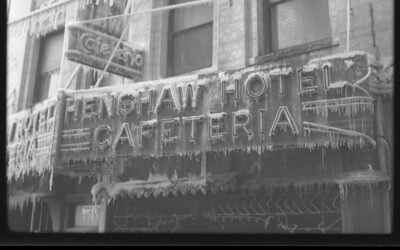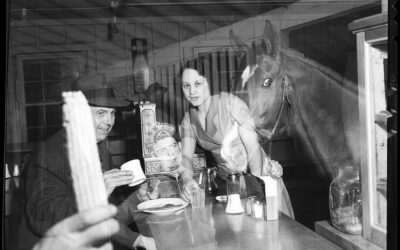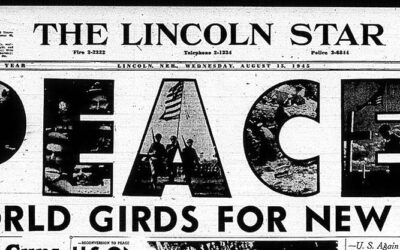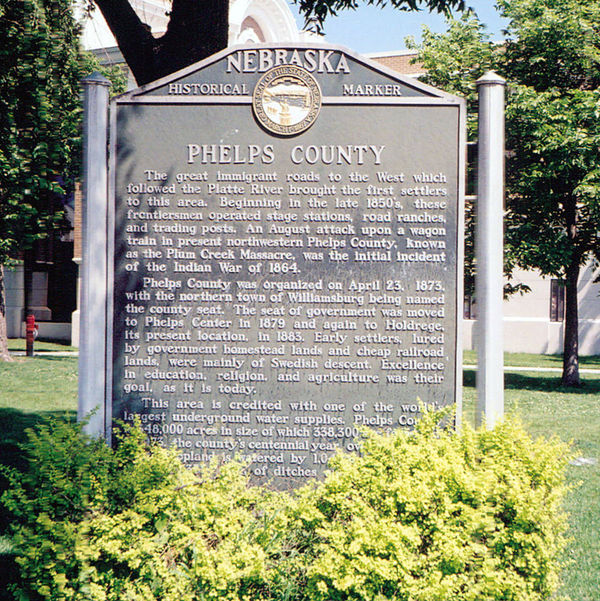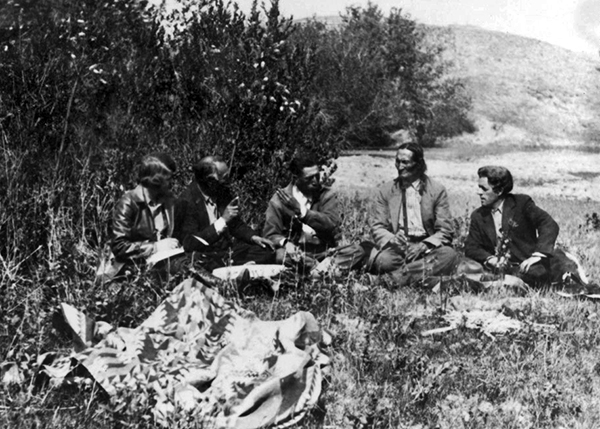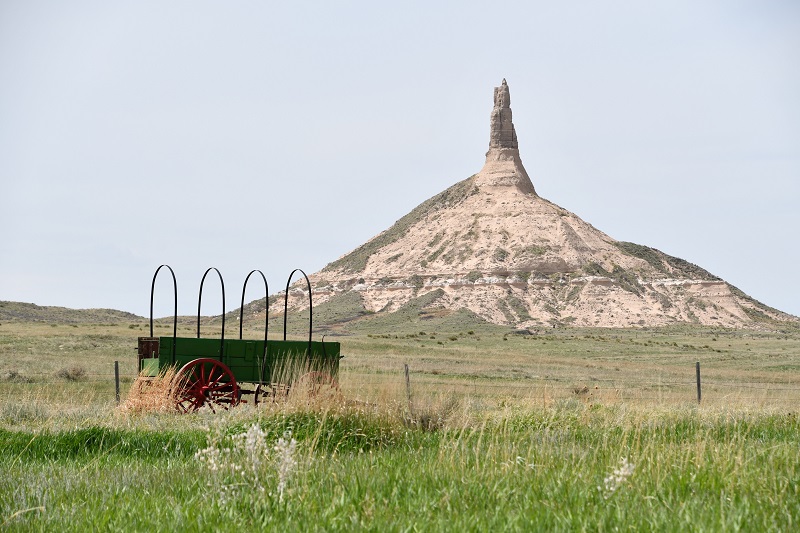Digital Curation
Digital Curation FAQ
The Digital Curation team creates high-quality digital copies of analog collection material, provides accurate metadata, curates born-digital collections, develops long-term digital preservation, and provides access to digital content to all audiences.
If you have questions about searching digital materials in Preservica, please click here.
Below are some of the frequently asked questions of our Digital Curation team.
General Questions
What services do you provide?
The Digital Curation Department at History Nebraska is responsible for:
- Digitizing analog collections owned by History Nebraska
- Providing high-resolution scans to patrons
- Determining use fees of History Nebraska’s materials to be published
Can you digitize my personal photographs/papers/videos for me?
History Nebraska does not offer digitization services for personal materials.
At what DPI/file formats do you scan History Nebraska collection materials at?
All digitized materials are scanned at least 600 DPI* and saved as TIF files. See our specifications for more information.
*DPI may increase due to the format of the object
What formats are you able to digitize?
The Digital Curation Department is able to digitize a wide variety of sized materials housed in the History Nebraska collections.
Why would you not be able to digitize materials?
There are a number of reasons why objects may not be digitized. This may include:
- Condition: The object may be too fragile to be scanned safely
- CopyRight: If materials are in copyright and History Nebraska does not retain the copyright we are unable to digitize the objects
- Size: The object may be too big for the scanning equipment that is available
Every object is evaluated on a case-by-case basis to determine if it can safely be digitized. See our scanning specifications to learn more.
What metadata standards does Digital curation use?
The Digital Curation department uses Qualified Dublin Core. Several local terms have also been included to ensure resources are easily located.
When applying metadata, History Nebraska strives to:
- provide descriptive and accurate interpretations of the objects being digitized.
- ensure the digital surrogates are discoverable and usable by both people and systems.
- provide context for the original item and its inclusion in the particular digital collection or project it is being presented within.
- enable users to assess the authenticity of the digital surrogate.
- provide access to materials in culturally appropriate and inclusive ways.
- provide global access to History Nebraska’s collections.
What if I see something wrong in your metadata?
We love to learn more about our collections and make our descriptions of them better! If you find any errors in the metadata (descriptive information) about our digital collections, please use this form to let us know what is wrong and, if you know, how to correct it. We may contact you for further information. Thank you for taking the time to give us feedback!
We will contact you for more information or to confirm changes have been made within 10 business days. Click here to fill out the form.
What scanning equipment do you use to digitize materials?
The Digital Curation department has a variety of scanning equipment that allows us to scan a wide range of sized materials. Scanning equipment includes:
- Epson Expression 12000XL
- Book2net Scanner
- Zeutschel OmniScan OS C1 Color Scanner
- HP HD 42” Scanner
- FlexView 300 (Microfilm Scanner)
Where can I find collections that have already been digitized?
It depends on what you are looking for!
Materials digitized from our archival collections can be found here.
How do you cite History Nebraska collection materials?
Use Policy and Use Fees Policy
Where can I find History Nebraska Use Policy and Use Fee Schedule?
What are Use Fees for?
History Nebraska charges use fees to support the preservation and maintenance of its collections.
What is considered personal use/educational use?
No use fees are charged for reference copies, for use by individuals for personal enjoyment or private study, scholarship or research by teachers or students for class instruction or assignment, Nebraska government agencies (state, local, or tribal), or by Nebraska local news media.
What is the difference between commercial and non-commercial use?
Commercial: The image(s) will be published, displayed, or broadcast in a commercial environment for profit. This includes commercial websites representing a person or corporation that sells goods or services.
Non-Commercial Use: The images will be published, displayed, or broadcast by a 501(c)(3) Organization.
Can use/production fees be waived?
History Nebraska reserves the right to waive fees or other requirements individually at the discretion of the Associate Director, Collections Director, or History Nebraska Director. Such waiver of fees can be made only upon approval of the written application.
Patron Digitization Request
How do I submit a request for archival materials to be digitized?
Email our research and reference staff at [email protected].
Digitization requests will be answered within the order they are received within 14 business days of receiving the request.
I am requesting archival materials to be digitized. How long will it take for me to get my materials?
The timeline for the completion of a digitization request depends on a variety of factors. Factors used to determine a timeline include:
- Size of request
- Volume
- Condition of the collection
- Placement in our request queue
- Current departmental projects
If you have questions regarding the digitization timeline, please email [email protected].
How much will it cost to digitize archival materials?
The cost to digitize archival materials is dependent on the material type and the size of the order. See the History Nebraska Duplication Fee Schedule here.
Can I pay to expedite digitization?
History Nebraska does not offer rush or expedited digitization services. Digitization requests are completed in the order they were received.
How will my digitized materials be delivered to me?
Digitized materials, relevant receipts, and use agreements will be delivered via a Google Drive folder. Be sure to download the content to your local machines because the contents of the folder sent will automatically be deleted after 4 weeks.
Do you provide prints of digitized materials?
No, all materials digitized by the Digital Curation Department are only available in their digital format. Requests will be transferred via a Google Drive folder.
Once I receive my digitized materials, can I do whatever I want with them?
Archival materials digitized by History Nebraska are subject to our Use Policy. Personal or educational use is not limited. However, commercial uses are subject to additional use fees.
How should I cite History Nebraska if I use digitized materials in my publications?
I know the topic of materials I want digitized, but I do not know the specific materials. How should I proceed with my digitization request?
Please email [email protected]. Collection staff will help you find what you are looking for.
Can you digitize a portion of a tape/reel/file from the audiovisual collection?
We only digitize the entire tape/reel/file. No individual segments may be requested.
Can you digitize a book that is still in copyright?
No, we are unable to digitize books that are still in copyright.
Can you digitize a portion of a book?
The Digital Curation Department only digitizes whole books.
Become a Member!
Our members make history happen.

